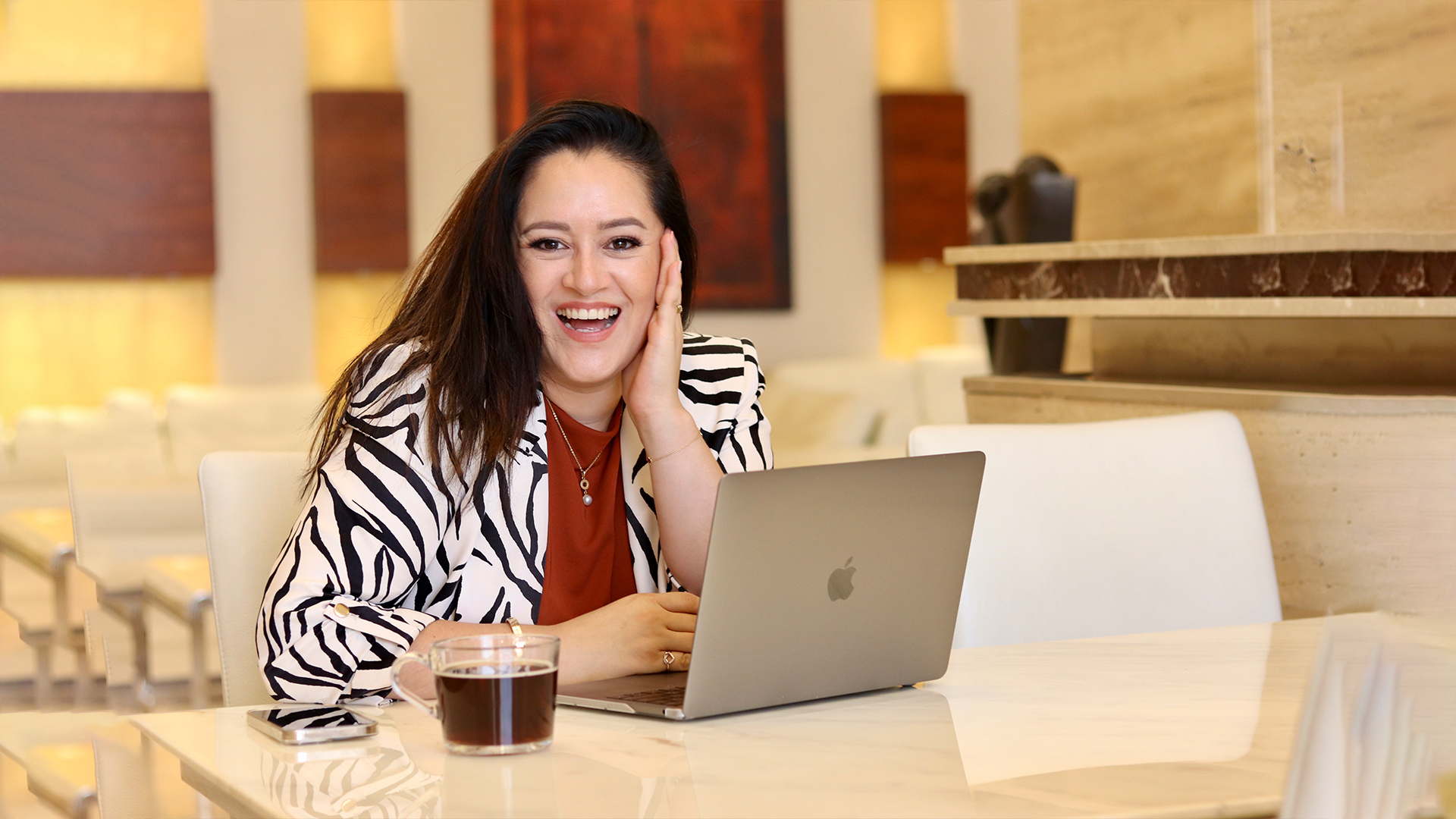For Malu Marsault, the instability of life during the pandemic coupled with the anxieties of a growing family inspired her to take charge of her financial trajectory.
Qatar-based resident Malu Marsault has emerged as a leading money coach for women in the country, opting to utilise her wealth of knowledge to empower others through financial literacy.
Like many, Marsault’s job was on the line as the hospitality industry took a hit during the 2020 Covid-19 pandemic. With the added later of pregnancy at the time, 2020 was the year in which she chose to take charge of her financial future and work towards becoming a certified money coach and financial investor.
Speaking to Doha News, the award-winner of Women of Change 2022 award in the Economic Empowerment category by Doha Women Forum, said there was a defining moment for her shift in mentality.
“I found out I was pregnant and I was so happy because I’ve always wanted three kids. But when I announced it to my husband, I didn’t expect his reaction to be honest. He went pale and was like, ‘what are we gonna do’ because it happened during Covid”.
“It was a very tricky situation. The worry of money took away the joy of the moment,” Marsault said.
Marsault was confronted with an unsolicited reality check: “I said I have two options, option number one, I will do nothing and just accept the fact that we are going to live with scarcity, with money worries. Option number two was about finding out what it is exactly that I need to do to be well financially because we both were working super hard.”
“And this is one of the misconceptions most of us have about money that working hard equals more money. But that isn’t true.”
The Covid-19 pandemic dealt a major blow to labour markets across the world. Stringent government-enforced preventative measures, including complete lockdowns in countries like Qatar, forced many to take their work home, while others were forced to pack up their desks altogether.
According to the International Labour Organisation (ILO), around 255 million jobs were lost globally in 2020 due to the pandemic, representing a significant increase in unemployment compared to previous years.
Financial literacy for women
Marsault admits she had no prior experience with financial literacy and left her husband to handle all finances at home. However, the instability of life during the pandemic coupled with the anxieties of the family’s third pregnancy inspired her to delve into self education and personal development to acquire the right tools to kick start her new journey.
“I want to be able to give my kids a future that perhaps I didn’t have and I just want to be better economically and be financially free.
“Like I don’t want to always be depending on my husband if something happens,” she said. “That made me shift the way I see money. As soon as income would come, I would start thinking, ok, what stocks can I buy instead of what dress am I gonna buy?”
Three years on, Marsault, known online as ‘This Mama Invests’ is now a certified coach with a business registered in neighbouring Dubai. Now, the mother of three has taken on her new passion with full force and is teaching dozens of other women the principles of wealth management and investing.
“I really target women because I think that there is not enough representation in the world of finance. Investing is a male-dominated field and so having a female voice, it really does help because when you see someone else doing something, you are more inclined to think [and do it too],” she said.
“I think money really allows you to say no to situations that are not making you grow. You can really say no to a job that you don’t like, you can say no to a situation to a person, to anything that you don’t like if you have the financial needs, it’s much easier. I’ve seen so many people that want to divorce or get out of their job, but need the money. So this is why I feel like financial literacy for women especially is more important,” she added.
Financial stability and self-reliance also becomes more of an attractive venture for many women, given the lack of representation in the field. “Women typically grow up completely disempowered because we receive less money than boys,” Marsault noted.
Figures from the World Economic Forum’s Global Gender Gap Report 2021, warn it will take another 135.6 years to close the global gender pay gap. The report also ranks Qatar at 132 out of 156 countries in terms of the gender pay gap, suggesting that women in the Gulf state make approximately 55% of what their male counterparts earn. “The Middle East and North Africa region remains the area with the largest gap (60.9%),” the report states.
Changing times
Despite the alarming statistics, there are advantages to living in countries like Qatar, where some 85% of the total population is made up of expatriates.
“We have a financial advantage here in Qatar. When you’re working in countries in the GCC the packages and salaries are higher and they are tax free,” the Latin American told Doha News.
“We are conditioned to think we need to study and we need to find a job that pays the bills and then we need to work until we’re 60.”
“That is not really the rule anymore. Now, you see 20 year olds making a lot of money on YouTube,” she said, adding that the lack of information provided in the traditional education system often means people’s understanding of wealth is typically shaped by parents, friends, and the media.
“So if nobody teaches us, we are on our own to figure it out.”







